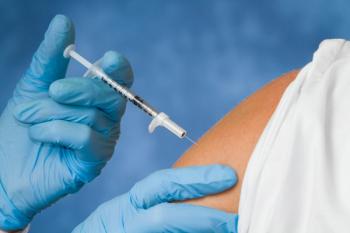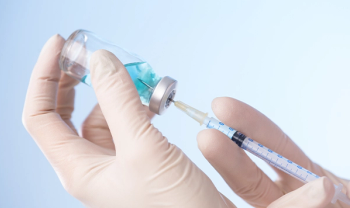
CDC Streamlines COVID-19 Vaccination Recommendations: One Shot for Adults Under 65, Two for Seniors
The federal government is hoping that newly simplified vaccination guidelines will lead more Americans to get vaccinated against COVID-19. In other pandemic news, HHS announced plans to keep vaccines and treatments free for the uninsured, and an appellate court sided with the Biden administration's disputed vaccination requirement for federal contractors.
In a long-awaited decision streamlining what has been a series of confusing recommendations about who should be vaccinated against COVID-19, with what and how often, the CDC said:
- Most people ages 6 to 64 will now be considered up to date if they received one bivalent mRNA shot.
- People over 65 or with compromised immune systems should get a second mRNA shot (and the latter may be eligible for more).
“Simple recommendations are easier to communicate, which may improve uptake,” Sara Oliver of the CDC's National Center for Immunization and Respiratory Diseases, said last week during a meeting of the agency’s external Advisory Committee on Immunization Practices.
The CDC recommendations mirrored what the FDA had decided a day earlier in amending the emergency use authorizations for the Moderna and Pfizer-BioNTech bivalent mRNA vaccines.
These vaccines — against the original and omicron BA.4/BA.5 strains, which is why they called “bivalent” — will now be considered the primary series. The original monovalent mRNA vaccines will no longer be recommended for use in the United States.
Authorizations for Novavax and Johnson & Johnson Covid vaccines, which use different technology, remain unchanged.
The coronavirus that causes COVID-19 continues to mutate, so updated vaccines are likely to become available as the next season approaches and “based on available data now we anticipate that there would be benefits of Covid vaccines given this fall,” Oliver said.
Despite the streamlining of current recommendations, they are still complicated enough to require bullet points rather than an easily deciphered color-coded chart.
Additional details for children under 6 and people with conditions that leave them immunocompromised can be found in announcements from the
No changes for pregnant women were mentioned.
Federal program to continue free vaccines for the uninsured
HHS announced last week that it was creating a $1.1 billion public-private partnership to ensure that COVID-19 vaccinations and treatments remain free for people without insurance through December 2024.
With temporary pandemic aid shutting down — and many people expected to lose state Medicaid benefits with the end of a federal ban on disenrollments — the “HHS Bridge Access Program for COVID-19 Vaccines and Treatments” would fill the gap in two ways, the
First,CDC will use its existing authority to buy vaccines at a discount and distribute them through its network of state and local health departments. They will then distribute the vaccines to local departments and health centers supported by the Health Resources and Services Administration (HRSA), which will also provide direct support for their delivery of vaccines as well as treatments.
Second,HHS will create “a novel, funded partnership” with pharmacy chains that will pay them to administer each dose of any COVID-19 vaccine and provide treatments like Paxlovid. Vaccine and drug manufacturers have said they would offer their products free of charge, although few details have been released. The HHS program would pressure them to follow through.
Court upholds Biden administration vaccine mandate for federal contractors
The Ninth Circuit Court of Appeals on Wednesday sided with the White House in its fight to require COVID-19 vaccinations for federal contractors.
“President Biden was justified in concluding that requiring federal contractors who worked on or in connection with federal government projects to be vaccinated against COVID-19 would promote economy and efficiency,” Circuit Judge Mark J. Bennett wrote in
The plaintiffs, which included the Arizona attorney general and Phoenix firefighter and police associations, joined by the state legislature and chamber of commerce, argued, among other things, that federal agencies were limited in their authority to unilaterally make major decisions. But the appeals court ruled that the contractor mandate was a presidential action, not an agency’s.
Newsletter
Get the latest industry news, event updates, and more from Managed healthcare Executive.























